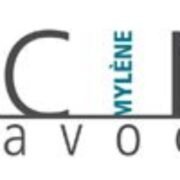Best New Business Formation Lawyers in Sierre
Share your needs with us, get contacted by law firms.
Free. Takes 2 min.
List of the best lawyers in Sierre, Switzerland
About New Business Formation Law in Sierre, Switzerland
In Sierre, a town in the canton of Valais, forming a new business hinges on Swiss national law and cantonal registration rules. The Swiss Code of Obligations guides corporate structure, governance, and shareholder rights for GmbH and AG forms. The commercial registry in Valais handles public registration of new businesses that operate from Sierre. This framework ensures transparency for investors, lenders, and customers in the region.
For small or sole proprietorships, registration requirements are simpler, but even these require careful adherence to tax and reporting obligations. In practice, most startups in Sierre and the wider Valais region choose GmbH or AG structures when growth, external investment, or liability protection are priorities. Understanding both national rules and cantonal registration processes helps avoid delays and penalties.
Key steps typically include selecting a business form, checking the proposed name, drafting organizational documents, notarizing the articles of association, depositing share capital, and registering with the Registre du commerce in Valais. After registration, ongoing obligations include annual accounts, tax compliance, and, if applicable, VAT registration and payroll reporting. Accurate initial planning reduces the risk of later disputes or restructuring costs.
Why You May Need a Lawyer
- Choosing the right form for a Sierre-based venture and drafting Articles of Association for a GmbH or AG to meet capital and governance requirements.
- Creating a detailed shareholder agreement to govern control, voting rights, and exit options among founders in Valais.
- Handling the notary act and registration with the Registre du commerce Valais, including capital deposits and name clearance in Sierre.
- Ensuring VAT registration and ongoing tax obligations after formation, especially for businesses employing staff in the canton of Valais.
- Drafting employment contracts, IP assignments, and data protection measures aligned with Swiss law and the Federal Act on Data Protection (FADP).
- Resolving cross-border licensing or regulatory requirements for activities that extend into nearby cantons such as Sion or Martigny.
Local Laws Overview
The following laws and regulations govern new business formation in Sierre and the wider canton of Valais. They establish the framework for corporate structure, registration, and taxation for new ventures.
- Swiss Code of Obligations (Schweizer Obligationenrecht, CO) - Governs the formation, capital requirements, and governance of GmbH and Aktiengesellschaften (AG). This code is the primary reference for corporate entities formed in Switzerland, including those registering in Valais and Sierre.
- Mehrwertsteuergesetz (MWSTG) and MWSTV - Swiss federal VAT legislation applicable to most businesses loading turnover thresholds. VAT registration and compliance begin when annual taxable turnover exceeds CHF 100 000 or on voluntary registration.
- Loi sur le registre du commerce (Valais cantonal framework) - Cantonal rules that govern how businesses are registered in the Valais region, including requirements for the registered office, local address in Sierre, and publication in the cantonal registry.
Some recent trends in this area include greater emphasis on digitalization of the registration process and clearer timelines for notarial acts and online filing. Businesses starting up in Sierre should verify the current cantonal procedures with the Registre du commerce du Valais and ensure all documents reflect Swiss official formats. For cross-border entrepreneurs, it is important to consider both Swiss and EU regulatory interfaces when applicable.
Frequently Asked Questions
What is the difference between GmbH and AG in Switzerland?
A GmbH is a limited liability company with lower minimum capital and is common for small to mid-size ventures. An AG is a joint stock company often used for larger ventures and potential public investment. Both require notarization and registration with the Registre du commerce.
How do I form a GmbH in Sierre?
Choose a unique company name, draft Articles of Association, obtain notarization, deposit at least CHF 20 000 in capital, and file for registration with the cantonal registry in Valais. Expect several weeks from start to complete registration.
What documents are needed to register a new business in Valais?
You will typically need IDs or passports for directors, a notarized form of incorporation, Articles of Association, proof of capital deposit, and a Swiss registered office address. Additional documents may apply for foreign owners or directors.
How long does the registration process take in Valais?
From the filing date, the process generally takes two to six weeks, depending on document completeness and any required clarifications by the Registre du commerce. Delays are common if translations or attestations are missing.
How much capital is required for GmbH and AG?
GmbH requires a minimum capital of CHF 20 000, with at least 50 percent paid up at formation. An AG requires CHF 100 000 in share capital, with at least CHF 50 000 paid up before or at registration.
Do I need a Swiss address for the registered office?
Yes. The registered office must be located in Switzerland, and you should have an actual address in Valais or a location in Sierre for service of process and official correspondence.
Can a foreigner be a director of a Swiss company?
Foreign individuals can hold director positions in Swiss companies, but banks, insurers, and certain regulatory regimes may impose additional suitability or residency checks. Always verify with your lawyer and the bank.
What is the VAT threshold for Swiss registration?
A business must register for VAT if its annual taxable turnover exceeds CHF 100 000. Voluntary registration is possible above lower thresholds or for specific business activities.
Is a notary required to form a Swiss company?
Yes. Notarization of incorporation documents and, for many forms, the Articles of Association, is required before registration with the Registre du commerce in Valais.
What are the ongoing compliance obligations after formation?
Ongoing obligations include annual financial statements, tax filings, VAT reporting if applicable, and maintaining corporate records. Employee contracts and data protection measures must comply with Swiss law.
What is the difference between a provisional and a final registration?
Provisional registrations may occur in cases where notarization or capitalization is pending. The final registration completes legal recognition, permits public rights, and triggers tax and regulatory obligations.
Additional Resources
These official and reputable resources provide guidance on business formation and compliance in Switzerland and comparative regulatory perspectives.
World Bank - Switzerland: Starting a business and regulatory environment indicators provide cross-country context for Swiss company formation practices.
OECD - Switzerland: Regulatory environment for business and entrepreneurship, with country profiles and reform trends.
European e-Justice Portal - Business creation and company formation guidance for cross-border and EU-CHF interfaces.
Next Steps
- Define your business plan and decide on the legal form most suitable for your Sierre venture. This should occur within 1-2 weeks after initial idea validation.
- Collect required identification and corporate information for founders, and check the proposed company name for availability in Valais.
- Engage a local lawyer or legal counsel specializing in Swiss company formation in Sierre to tailor your Articles of Association and shareholder agreements.
- Draft the core incorporation documents and schedule a notary meeting to authenticate them, then arrange the capital deposit with a Swiss bank.
- Prepare and file the registration package with the Registre du commerce du Valais, allowing 2-6 weeks for processing depending on completeness.
- Set up VAT registration if needed and prepare payroll, accounting, and annual reporting processes for ongoing compliance.
- Establish internal governance, data protection measures, and employment contracts aligned with Swiss law before commencing operations.
Lawzana helps you find the best lawyers and law firms in Sierre through a curated and pre-screened list of qualified legal professionals. Our platform offers rankings and detailed profiles of attorneys and law firms, allowing you to compare based on practice areas, including New Business Formation, experience, and client feedback.
Each profile includes a description of the firm's areas of practice, client reviews, team members and partners, year of establishment, spoken languages, office locations, contact information, social media presence, and any published articles or resources. Most firms on our platform speak English and are experienced in both local and international legal matters.
Get a quote from top-rated law firms in Sierre, Switzerland — quickly, securely, and without unnecessary hassle.
Disclaimer:
The information provided on this page is for general informational purposes only and does not constitute legal advice. While we strive to ensure the accuracy and relevance of the content, legal information may change over time, and interpretations of the law can vary. You should always consult with a qualified legal professional for advice specific to your situation.
We disclaim all liability for actions taken or not taken based on the content of this page. If you believe any information is incorrect or outdated, please contact us, and we will review and update it where appropriate.









